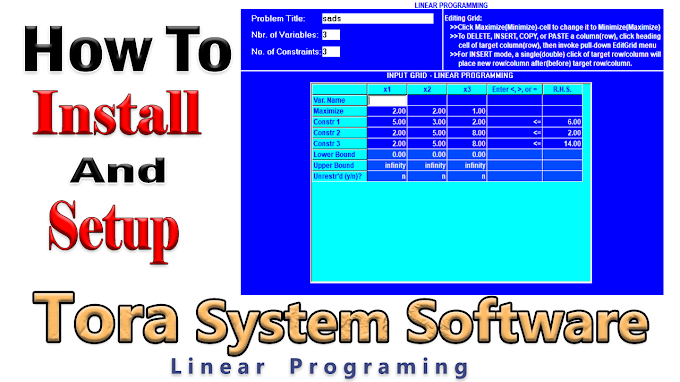To Be a good programmer you need to follow this easy steps
The best in their field are those who appreciate that there's always more to find out. Here are six steps to becoming a higher programmer this year.
Coding is an evolving discipline. That’s often what draws people to that – except for the chance to figure with a number of the largest companies within the world – but it also means those within the industry have to constantly forestall.
It’s not enough to urge to grips with the foremost in-demand languages. If you wish to advance in your career, you wish to start out wondering how you'll become a higher programmer all-round, and these six steps are a decent start (if I do say so myself).
1. Use the Feynman Technique
The Feynman Technique could be a mental model named after Nobel Prize-winning physicist Richard Feynman.
It essentially boils right down to identifying gaps in your knowledge by imagining you had to show an idea during a classroom using simple language and analogies (much within the spirit of this subreddit).
When you identify the gaps, return to your books or whatever source of data you depend upon to show yourself the aspects you’re less at home with.
Then, just rinse and repeat, and suddenly you’re lots more confident executing code because you have got a stronger core understanding of it.
You can contribute to forums like Stack Overflow to also employ the Feynman Technique. By answering questions and viewing the answers others provide, you may develop a deeper understanding of what you are doing.
2. Improve your soft skills
Soft skills could seem to be the whole antithesis of programming (which is typically a central point of its appeal) but they're vital for your professional development.
If you’re ready to communicate with clients and superiors alike in an accessible manner, yet as present yourself and your ideas in a very pleasant and fascinating way, you’ll find that a lot of aspects of your vocation suddenly become easier.
If you’re worried that your soft skills are lacking, luckily they'll be learned.
3. ‘Don’t be afraid to interrupt things’
This advice comes from Mike Lewis, one among the numerous developers and programming experts who contributed to Kevlin Henney’s excellent 97 Things Every Programmer Should Know.
“Everyone with industry experience has undoubtedly worked on a project where the codebase was precarious at the best,” Lewis explained.
“Whenever a module is added, the coder’s goal is to vary as little as possible and hold his breath during every release.
“The reason that creating changes is so nerve-racking is because the system is sick. It needs a doctor, otherwise its condition will only worsen.”
The idea of breaking something while you progress things around could appear anxiety-inducing – no professional wants to finish up making things worse, plus a programmer – but if you’re willing to interrupt things, you’ll find yourself with better overall code and, in turn, become a much better coder.
4. Write code thrice
Writing code has been compared to writing a unique and, similar to in novel writing, you must never tout your first draft as your finished product.
By the time you finish writing code the primary time, sure, it’ll work, but will it work well? it should be functional, but will it's elegant? If you aspire to elegance (which you should), try writing code 3 times.
Think of your first time writing as an indication of concept, your second time as you making it work and your third time as you making it work correctly.
5. Write many code generally
‘Practise, practise, practise’ isn't a saying isolated to the programming world, and permanently reason. Coding could be a skill like every other, so the most effective thanks to improve professionally as a coder is to put in writing plenty of code.
You can use GitHub to display your projects and so produce other developers critique your work and supply guidance on a way to approach things differently.
Then, compile your best projects into a formidable portfolio that may go an extended way towards building your profile.
You can attend hackathons or join a pair-programming mentorship programme to hone your skills.
Consider contributing to open-source communities as the way to both build connections within your field moreover as gain insight into the ways people approach problems that differ from your own.
6. Do unit testing
Unit testing can often strike fear and dread into the hearts of developers, but using it to style your code can make sure that every component of your work functions exactly how you intended.
As Steve Sanderson points out, programmers mustn't approach unit testing as if it’s the simplest way to seek out bugs; simply because components work independently doesn’t mean they’re compatible.
Unit testing could be a key component of test-driven design. It makes the full process a touch more time-consuming, which may be fuel to the hearth if you’re already panicking a couple of fast-approaching deadline, but the top result's better-quality code that demonstrates your attention to detail.
7. Don’t just read the sample code. Tinker with it!
Learn programming faster
Reading sample code isn't enough to know how it works. To develop a real understanding, you would like to truly run the code and tinker with it. With the additions of comments and directions, sample code is packaged to be by the reader; but actually, it’s pretty difficult to duplicate from scratch. Reading isn't the identical as understanding, and truly trying to put in writing the code yourself, or a minimum of running it, will facilitate the educational process way more.
8. Take breaks when debugging
Learn programming faster
When debugging, it’s easy to travel down the hollow for hours, and there’s no guarantee that you simply will fix the matter. To avoid this, it’s best to step off from the for some hours, and return with a fresh perspective. Not only is that this a guaranteed thanks to help solve the matter, but you’ll also save yourself hours of headache. So if help isn’t available – to the touch on our previous tip about seeking advice – consider taking a prospect to clear your mind and return later. within the meantime, the bug won’t be going anywhere, and you’ll a minimum of restore some needed sanity to enhance productivity.
References :
1- Silicon republic, by Eva Short, Be a better programmer in 6 Steps
2-Codingdojo, by Stephen Sinco,7 Critical Tips to Learn Programming Faster,
December 12, 2014
Read More…













0 Comments